On February 25, the Committee of 100 hosted a luncheon at the U.S. Capitol building on “Climate Change and Energy: Sino-American Partnership After Paris”, in cooperation with the U.S. Association of Former Members of Congress (USAFMC). This briefing was part of C-100’s national Speakers Forum Series, a high-level platform that addresses and provides balanced views on major issues in U.S.-China relations.
Congresswoman Judy Chu, (CA-27th District) welcomed more than 40 audience members, including former Members of Congress, Congressional Staff, members of the diplomatic corps, and other distinguished stakeholders. Congresswoman Chu expressed gratitude to C-100 for trying to provide balanced views on U.S.-China relations, especially in an election year. Congresswoman Chu also noted that U.S.-China energy and climate cooperation is of significant importance and represents a new chapter of commonality.
The panel discussion was moderated by C-100 member Bob Gee, who is the former Assistant Secretary at the US Department of Energy for Policy and International Affairs and for Fossil Energy. The four distinguished panelists were Paul Joffe, Senior Foreign Policy Counsel of World Resources Institute; Robert A. Manning, Senior Fellow of Brent Snowcroft Center on International Security and its Strategic Initiative of The Atlantic Council; and Jennifer L. Turner, Director of China Environment Forum at Woodrow Wilson Center for International Scholars.
Mr. Gee opened the panel discussion by introducing the historical agreements reached in Paris Climate Summit and stressing how cooperation is the only route towards a common solution to the global challenge of climate change. The panelists took turns to discuss recent U.S.-China cooperation in different areas of carbon emission reduction, and the implication energy and climate cooperation has on areas including trade and security.
C-100 member Nancy Yuan, Vice President and Director of The Asia Foundation also participated in the briefing.
The Honorable Mike Kopetski, former Congressman from Oregon, praised the constructive role of C-100 in educating Capitol Hill with balanced views, and advancing progress in the U.S.-China bilateral relationship for over 25 years. He mentioned that in the early 1990s, the U.S. Congress was very divided on whether to keep normal trade relations with China. The work of C-100 contributed greatly at that time to the decision to continue America’s engagement with China, and the climate agreement is one of the greatest results of this long-term relationship.
More events and resources on U.S.-China energy and climate change cooperation can be found at: China Environmental Forum at Woodrow Wilson Center for International Scholars and China FAQs at World Resources Institute.
This event is supported in part by the J.T. Tai Foundation.
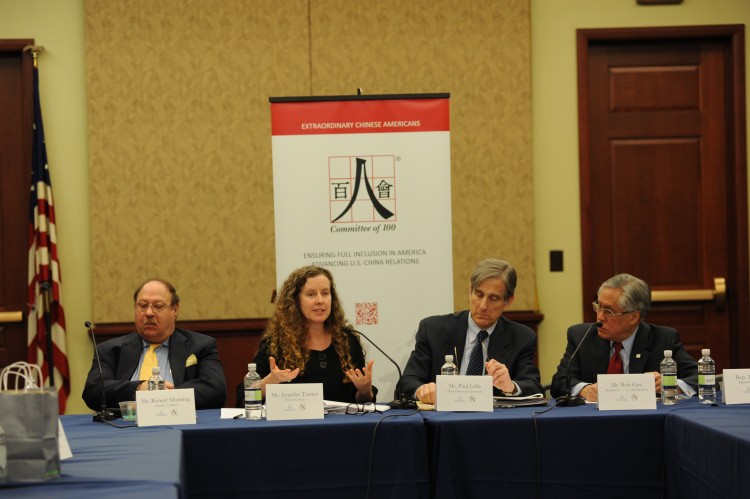 Panelists Robert Manning, Jennifer Turner, Paul Joffe and C-100 member Robert Gee
Panelists Robert Manning, Jennifer Turner, Paul Joffe and C-100 member Robert Gee
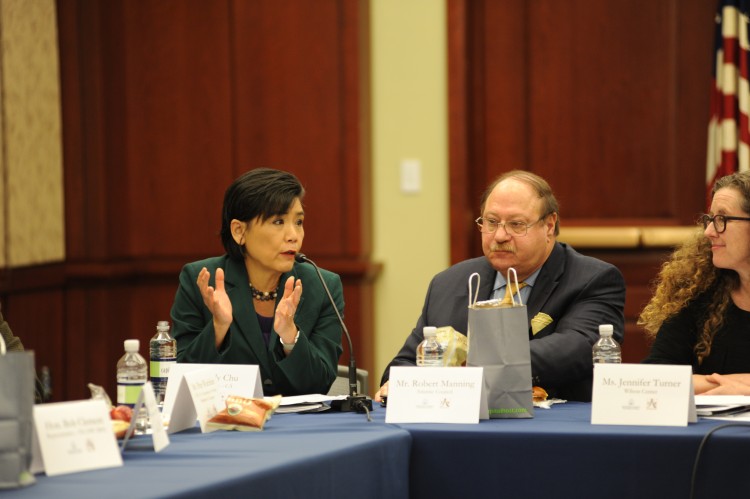 Congresswoman Judy Chu gave welcome remarks
Congresswoman Judy Chu gave welcome remarks
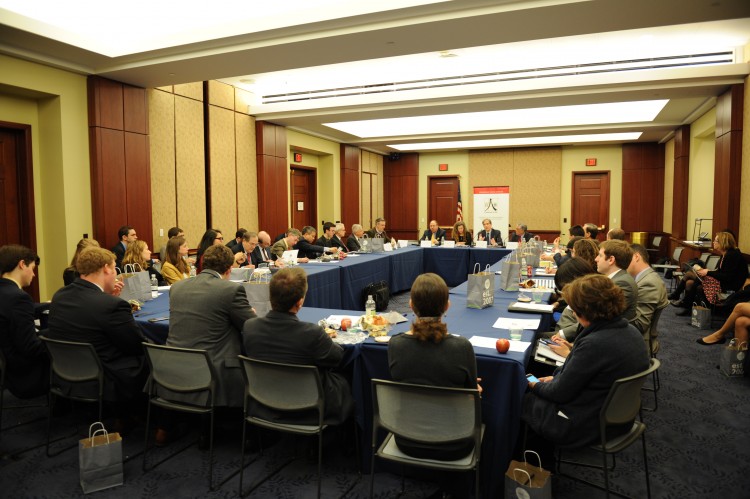 Over 40 attendees at the Capitol Building
Over 40 attendees at the Capitol Building
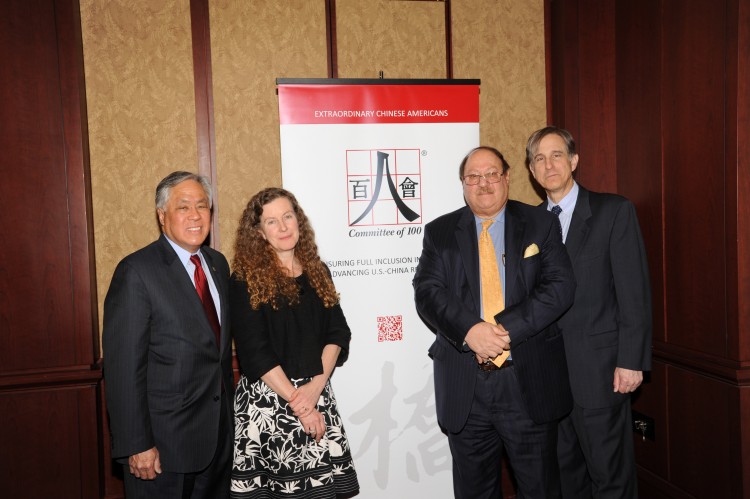 Distinguished Speakers Bob Gee, Jennifer Turner, Robert Manning, Paul Joffe
Distinguished Speakers Bob Gee, Jennifer Turner, Robert Manning, Paul Joffe
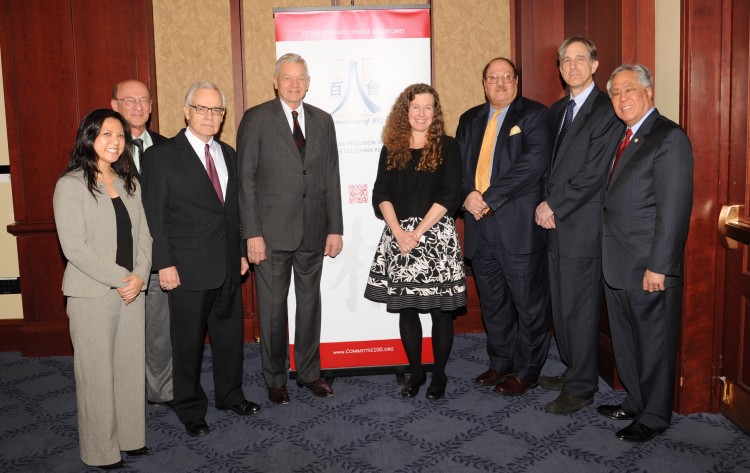 C-100 Executive Director Holly Chang, The Honorable Mike Kopetski, The Honorable Bob Clement, The Honorable Tim Petri, Panelist Jennifer Turner, Panelist Bob Manning, Panelist Paul Joffe, Moderator and C-100 Member Bob Gee
C-100 Executive Director Holly Chang, The Honorable Mike Kopetski, The Honorable Bob Clement, The Honorable Tim Petri, Panelist Jennifer Turner, Panelist Bob Manning, Panelist Paul Joffe, Moderator and C-100 Member Bob Gee